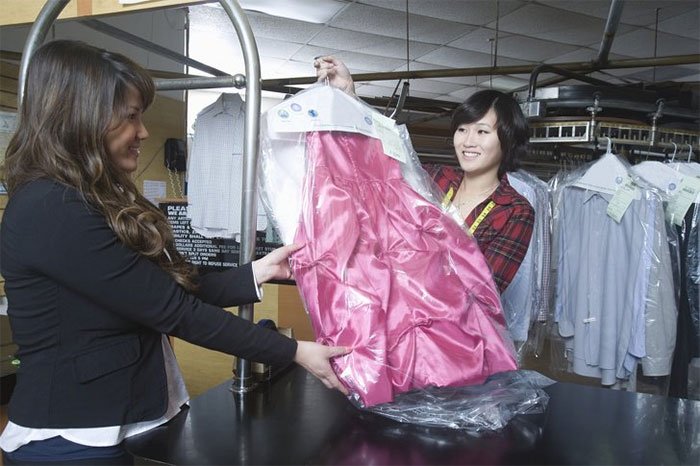9 habits everyone makes daily can cause cancer or encephalitis
After reading this article, you will definitely need to review your habits!
Habits can cause cancer or encephalitis
- 1. Drink directly from plastic bottles
- 2. Use dry cleaning clothes
- 3. Refrain from sneezing
- 4. Use perfume containing many chemicals
- 5. Squeeze acne
- 6. Using cosmetics with synthetic ingredients
- 7. Do not change pillowcases
- 8. Nose hair removal
- 9. Eat pre-packed meals
Humans as well as other animals have a sense to help smell the dangerous smell. Of course, not all situations are predictable. Especially the things we do every day that we believe are harmless. Here are 9 extremely dangerous behaviors, causing serious health harm that few people notice.
1. Drink directly from plastic bottles
Microplastic is found in most plastic bottles. These plastic particles are threatening human health by reducing fertility, affecting the development of male genitals, increasing body fat, causing obesity in children, and negatively affecting nervous system and immune system, and increase the likelihood of developing cardiovascular disease. These plastic bottles are even more impactful on children.
2. Use dry cleaning clothes

A lot of dangerous chemicals are used when dry-cleaning clothes.
Dry cleaning is a chemical cleaning process. A lot of dangerous chemicals are used when dry-cleaning clothes, and some can get on the fabric. When you inhale these chemicals, you may experience respiratory irritation, headache, dizziness and vision problems.
3. Refrain from sneezing
You should never hold back a sneeze. If you try to hold your breath, it is likely that you will break the eardrum by the air - which the sneeze would have liberated - move to your ears. Trying to sneeze can also cause the blood vessels in the eyes, nose and eardrum to contract excessively and burst.
4. Use perfume containing many chemicals
Many perfumes are full of toxic ingredients, but the production companies have kept secrets from consumers. These ingredients come from petroleum, which can cause breathing problems and hormones, creating symptoms like nausea and vomiting. In the worst case, the user might even get poisoned or cancer from perfume.
5. Squeeze acne

Squeezing can make acne worse.
First of all, squeezing acne can make acne spots worse, even causing scars / dark spots, so it's really not necessary. There is a facial area called the "death triangle , " which is directly linked to the brain. If you try to squeeze acne in this area and get an infection, the nervous system may be affected and complications with vision, paralysis and meningitis may develop. The worst case scenario could be death. If you feel like squeezing acne, just play with the wrist strap and the "desire" will disappear.
6. Using cosmetics with synthetic ingredients
One very important thing to know if when buying cosmetics is whether it contains synthetic ingredients. These compounds can be dangerous for you: they accumulate over time and cause skin irritation, even cancer.
7. Do not change pillowcases
Every night when you sleep, pillows will "absorb" skin, hair and oil. This will create the ideal habitat for dust mites to grow in your pillow, and it can cause serious allergic reactions for many people.
8. Nose hair removal
Epilation from the nose can cause irritation and dermatitis. Nasal hair removal means a weaker immune system, which can lead to meningitis and other types of brain infection.
9. Eat pre-packed meals

Pre-packaged foods are much less nutritious than fresh foods.
Pre-packaged foods are much less nutritious than fresh foods. But more importantly, many of these pre-cooked products contain carcinogens because they are cooked at too high a temperature. These meals also tend to contain substances that increase the risk of diabetes.
- Prevention and treatment of Japanese encephalitis
- Early signs of Japanese encephalitis
- The daily routine causes your life expectancy to be seriously shortened
- Japanese encephalitis on the top of the epidemic
- Harmonic habits but harmless
- Watch out for Japanese outbreak of encephalitis
- Encephalitis spikes
- Want to avoid the second most dangerous cancer in Vietnam, remember this eating habit
- 'Bad' habits are healthy
- 5 living habits can help you not get cancer
- 8 habits that lead to cancer risk
- Warning for acute encephalitis with Coxsackie virus
 13 causes of non-itchy rash
13 causes of non-itchy rash How the mouse with human ears changed the world?
How the mouse with human ears changed the world? The truth about 'fried rice syndrome!
The truth about 'fried rice syndrome! What is dental implant?
What is dental implant?